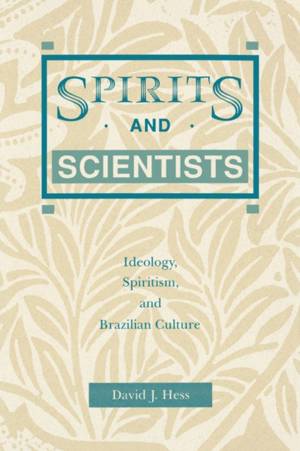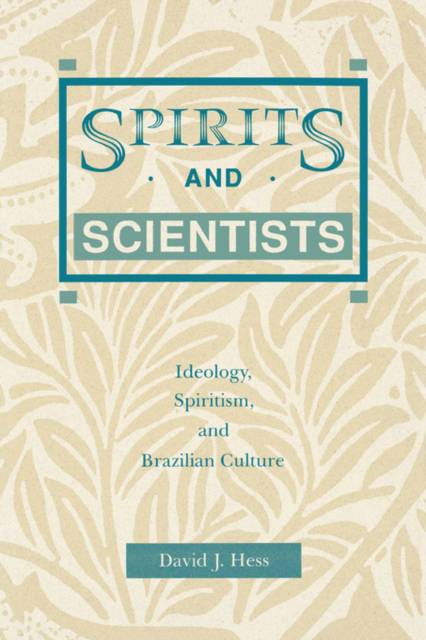
- Retrait gratuit dans votre magasin Club
- 7.000.000 titres dans notre catalogue
- Payer en toute sécurité
- Toujours un magasin près de chez vous
- Retrait gratuit dans votre magasin Club
- 7.000.0000 titres dans notre catalogue
- Payer en toute sécurité
- Toujours un magasin près de chez vous
Spirits and Scientists
Ideology, Spiritism, and Brazilian Culture
David J HessDescription
Brazilian Spiritism (espiritismo, kardecismo) is an important middle-class religious movement whose followers believe in communication with the dead via spirit mediums and in healing illnesses by means of spiritual therapies. Unlike Anglo-Saxon Spiritualists, Brazilian Spiritists count among their number a well-developed and institutionalized intellectual elite that has reinterpreted northern hemisphere parapsychology and developed its own alternative medicine and sociology of religion. As a result, the mediation between popular religion (especially Afro-Brazilian religious practices) and the orthodoxies of the universities, the state, and the medical profession.
Situating Spiritist intellectual thought in what he calls a broader ideological arena, Hess examines Spiritism in the context of religion, science, political ideology, medicine, and even the social sciences. Hess challenges the legacy of French sociologist Roger Bastide, who saw in Spiritism an elitist, middle-class ideology. In the process, Spirits and Scientists provides a new approach to middle-class religious movements in Latin America.
Spécifications
Parties prenantes
- Auteur(s) :
- Editeur:
Contenu
- Nombre de pages :
- 272
- Langue:
- Anglais
Caractéristiques
- EAN:
- 9780271033679
- Date de parution :
- 15-04-91
- Format:
- Livre broché
- Format numérique:
- Trade paperback (VS)
- Dimensions :
- 152 mm x 229 mm
- Poids :
- 408 g

Les avis
Nous publions uniquement les avis qui respectent les conditions requises. Consultez nos conditions pour les avis.






